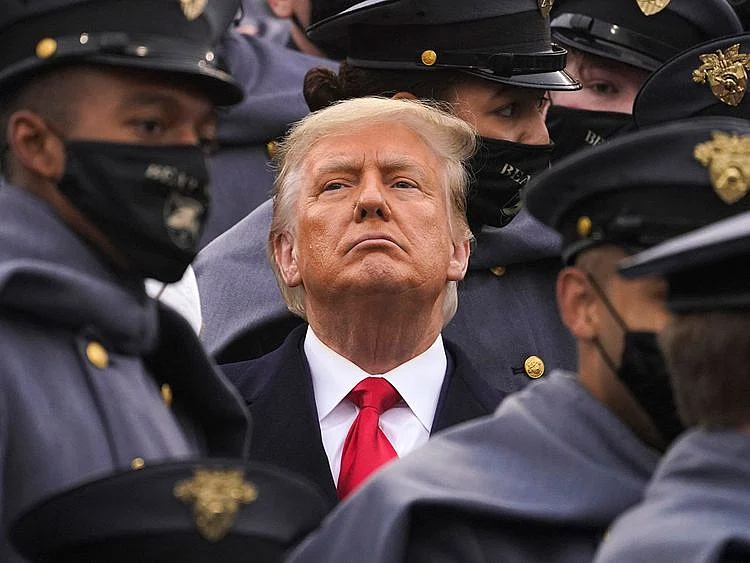Former US President Donald Trump is expected to turn himself in to authorities in New York on Tuesday, after being indicted on over 30 counts related to business fraud.
The charges relate to allegations of falsifying business records tied to hush money payments to adult film star Stormy Daniels.
Also Read
How Donald Trump's indictment amplified gaping US political divideUS: Ahead of Trump court date, NY police ‘alert’ and ‘ready’Donald Trump set to speak from Florida after arraignmentTrump court appearance: America faces a fateful momentUS: New York plans for Trump surrender with barricades, massive protests likelyIt is alleged that Trump reimbursed his ex-attorney Michael Cohen for paying Daniels through the Trump Organization, labeling the charges as “legal fees”, which is a felony in New York if they were falsified to cover up a crime. If convicted, Trump could face a prison sentence of up to four years.
Will Trump go to prison?
If Trump is convicted, he could face a maximum sentence of four years in prison. However, it remains to be seen whether the Manhattan Court charges will be the only charges Trump will face, as he is also under investigation in Georgia for his efforts to overturn the 2020 election and by the Justice Department in two investigations related to the 2020 election and him bringing White House documents back to Mar-A-Lago.
What happens when Trump surrenders?
Trump is likely to be booked at the Manhattan DA’s office, where he will have his fingerprints and mugshot taken and have his DNA and other information taken before he is formally arraigned and appears in court to plead guilty or not guilty. Although Trump has reportedly expressed interest in making his arrest into a “spectacle,” it is unlikely he will do the traditional “perp walk” before he is arraigned in handcuffs. This is because it would be a politically charged optics and potentially pose security concerns.
Will Trump be held in custody today?
Trump is almost certain to be immediately released once he is arraigned, particularly under new bail rules in New York that allow people who are indicted on misdemeanor charges or non-violent felonies to be released on their own recognizance without bail unless they are deemed to be a flight risk.
When could Trump be convicted?
The criminal cases typically take more than a year to go to trial, so Trump's trial is unlikely to take place until the 2024 election season is well underway, or even after the election takes place.
If Trump were tried on state charges as president or president-elect, it would be uncharted legal territory. Although it is hard to speculate on the case before the indictment is released, legal experts have cast doubt on the legal theory that prosecutors are expected to use, as well as other aspects of the case, such as relying on Cohen as a witness when he has been convicted of making false statements in the past, and potential issues with the statute of limitations in the case.
Will the indictment affect Trump’s 2024 run?
Being indicted or even convicted would not stop Trump from becoming president on its own, as legal experts have noted that there are no restrictions in the Constitution that bar people from becoming president if they have been indicted. However, if Trump becomes a convicted felon, it remains to be seen what will be next course of action of the Republican party.
Sign up for the Daily Briefing
Get the latest news and updates straight to your inbox
Network Links
GN StoreDownload our app
© Al Nisr Publishing LLC 2025. All rights reserved.
